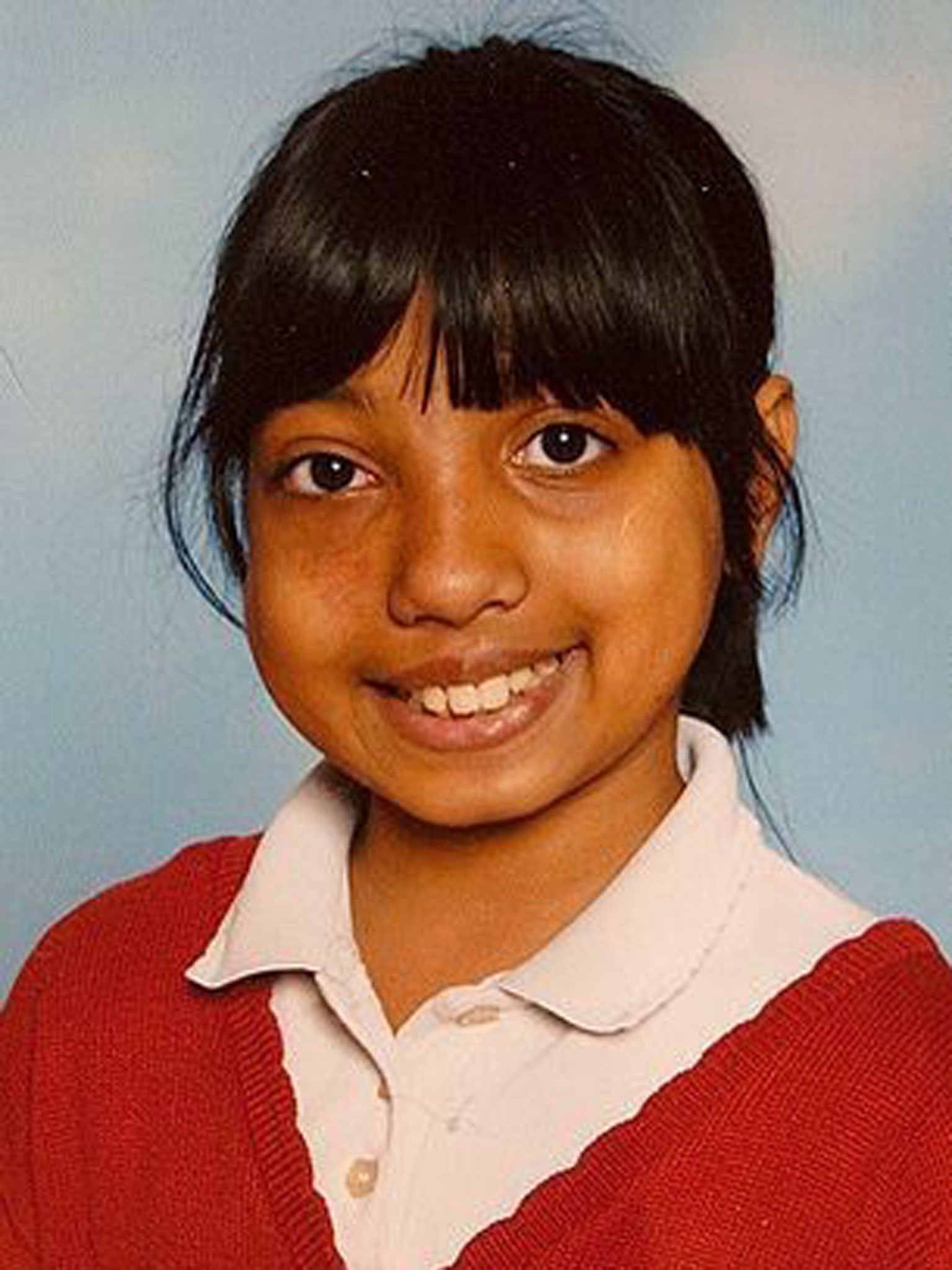Maisha Najeeb: Girl to receive multimillion-pound payout from hospital after accidental injection of glue into brain
Family of Maisha, who was 10 at the time, say they hope ‘lessons will have been learned’ from horrific case

A girl who suffered severe brain damage after she was accidentally injected with glue is to receive a multimillion-pound payout from Great Ormond Street Hospital.
Maisha Najeeb, 13, was receiving treatment for a rare medical condition in June 2010 when the botched procedure caused catastrophic damage, leaving her needing to use a wheelchair and requiring help with all aspects of everyday life.
The hospital has admitted liability and offered its unreserved apologies, and yesterday the High Court approved a settlement that will see the NHS trust pay a £2.8 million lump sum, plus £383,000 a year until Maisha is 19, increasing to £423,000 per year for as long as she lives, which some experts expect to be to the age of 64.
The court heard how the otherwise healthy little girl, then aged 10, required regular injections to treat a condition where the arteries and veins in her brain could become tangled and bleed.
One syringe would be used to apply glue, blocking off the affected blood vessels, while another would be used to apply a harmless dye allowing doctors to monitor the flow of blood.
But on this occasion, said solicitor Edwina Rawson, of legal firm Field Fisher Waterhouse, there was no system in place for distinguishing between the syringes containing the glue and those containing the dye, and they got mixed up.
This resulted in glue being wrongly injected into the artery to Maisha's brain, causing catastrophic and permanent brain damage.
Ms Rawson said: “What is so heart-breaking about this case is that the injury was so avoidable.
“If the syringes had been marked-up so the hospital could see which contained glue and which contained dye, then Maisha would not have suffered what is an utterly devastating brain injury. Such easily avoidable mistakes should not happen.”
Neil Block QC, said: “We can't wind the clock back. We hope there are now systems and procedures in place to ensure such a tragic mistake cannot be made again.”
He said one could not help but be inspired by what Maisha's parents, Sadir Hussain and Rukshana, had achieved in terms of their 13-year-old daughter's rehabilitation.
“It is probably the most intensive cognitive rehabilitation we have ever seen by a family and we would wish to acknowledge everything they have done for Maisha and wish them well for the future.”
Outside court, Maisha's father, of Ilford, Essex, said: “We are sad and devastated by what happened to our daughter. Her life is ruined. All her dreams have been broken.
“I hope that by bringing this case, lessons will have been learned to avoid this happening to other families.
“We are grateful that agreement has been reached with Great Ormond Street to ensure that Maisha's care needs are met.”
The NHS trust thanked the family for engaging with it open-heartedly, saying it had allowed staff to learn from what happened to Maisha so that improvements could be made.
Additional reporting by PA
Subscribe to Independent Premium to bookmark this article
Want to bookmark your favourite articles and stories to read or reference later? Start your Independent Premium subscription today.
